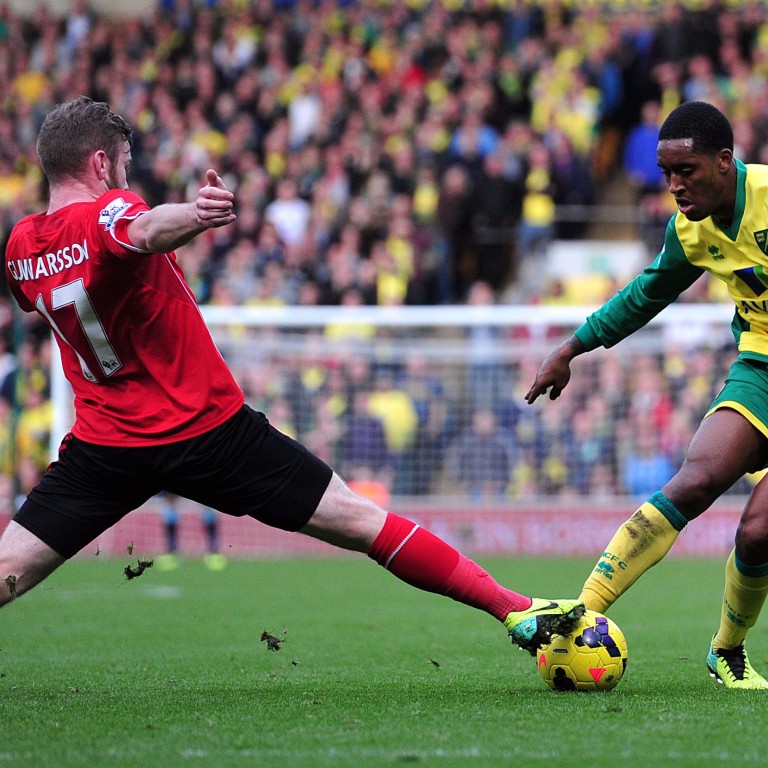
A bit of common sense from referees doesn't hurt
Match officials should be at pains to use their best judgment when making calls to make games run smoother, while respecting rules
EPL referee Mike Jones applied common sense during last week's match between Norwich City and Cardiff City, and received many plaudits, but by law it was incorrect and unacceptable. Technically his decision to order a throw-in to be retaken because he claimed he did not whistle, which effectively cancelled out the Canaries' winning goal, was incorrect. Even though common sense was used, the ends cannot justify the means.
Match officials, but not players and coaches, are expected to demonstrate common sense at all times. They have always been told to apply Law 18 - the unwritten law for common sense - whenever they can. But since this law does not technically exist, it doesn't take much brain power to realise it cannot override any of the existing 17 laws that apply at all levels of the game.
So why was Jones wrong to apply common sense in this case? The ultimate reason is because match officials need to exhibit thorough knowledge and sound application of the rules. If they cannot convey this, then the danger is everyone will lack confidence in their officiating. There will be accusations like: "He's making it up as he goes along," because rightly or wrongly that is what they believe. Jones is infamous for his "beach-ball blunder" four years ago when he incorrectly applied the laws in Liverpool's 1-0 defeat by Sunderland.
Even though most observers would agree that Norwich's Leroy Fer was unsporting according to the rather vague meaning of "spirit of the game", he nevertheless scored a perfectly legitimate goal.
There is nothing in the rules that states the referee has to blow his whistle. Because the referee's signal was clear, the players have the responsibility to continue play in a sporting manner. Since Cardiff City keeper David Marshall had earlier thrown the ball out so a Norwich player could receive medical attention, Norwich's Ricky van Wolfswinkel restarted the match. From his throw-in, Fer received the ball and, instead of passing it back to Marshall as all the Cardiff players expected, kicked the ball straight into Cardiff's goal. Cue chaos.
Jones realised this wasn't the desired outcome and then whistled for the throw-in to be retaken. This situation would never have occurred if players had let the referee decide whether to stop the match or not. Marshall is not the first, nor the last, player to be pressured or duped into putting the ball out of play so medics can assess a fallen opponent.
Referees do not like players taking it upon themselves to stop play for an apparently injured player. Players who do this also risk being hoodwinked. So why take this risk? The rules are there for a purpose, so leave it to the referee's judgment.
The rules are there for a purpose, so leave it to the referee's judgment
In the final frantic minutes of the 2010 World Cup final, Spain's Fernando Torres went down apparently injured. Holland, staring at a 1-0 defeat, ignored Torres' plight and continued to attack. This is how competitive soccer should be. Why offer a sporting gesture one time, and then blatantly ignore it another?
An example where common sense can be applied correctly was during the Chelsea-Cardiff City match two weekends ago that coincidentally also involved Marshall.
Although referee Anthony Taylor missed the incident where Chelsea's Samuel Eto'o kicked the ball away from Marshall who had possession, the referee could have used common sense to disallow the goal. This is because it is unlikely a goalkeeper would miraculously lose possession of the ball when there is an opportunistic vulture hanging around. Common sense would have helped the referee make the right decision, rather than allow Chelsea's controversial equaliser.
Here is what Jones could have done to save the situation at Carrow Road. Solution one: Since Norwich scored a controversial goal, just before restarting the match the referee should talk with both managers and captains to make sure everyone knows what the situation is. If one manager believes they should deliberately concede a goal to cancel out the "problem" goal (as Cardiff's Malky Mackay alleged Chris Hughton's stance to be), then this should be made clear to everyone on the pitch. We don't want a situation like last season in the Champions League between Shakhtar Donetsk and Nordsjaelland where half the Shakhtar Donetsk players agreed and half did not agree to allow the opposition to walk the ball into the net. This after Shakhtar Donetsk's Luiz Adriano, just like Fer, claimed he did nothing wrong to score instead of returning the ball to the opposition.
Solution two: A novel use of the laws with common sense. This requires detailed knowledge of the laws, so that when someone like Fer unsportingly kicks the ball into the net, the whistle should be blown. Under the laws, a player can be cautioned for acting "in a manner, which shows a lack of respect for the game". Restart would be a free kick to Cardiff.
Rational Ref has never seen a referee caution a player for showing a lack of respect for the game. This is despite the fact that Uefa charged Adriano for unsporting behaviour after the Champions League match where he scored his controversial goal, which technically amounts to the same offence. Match officials would do well to consider this.

